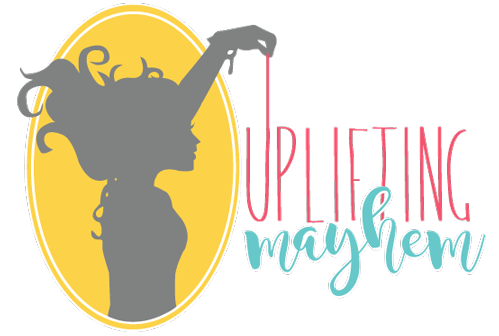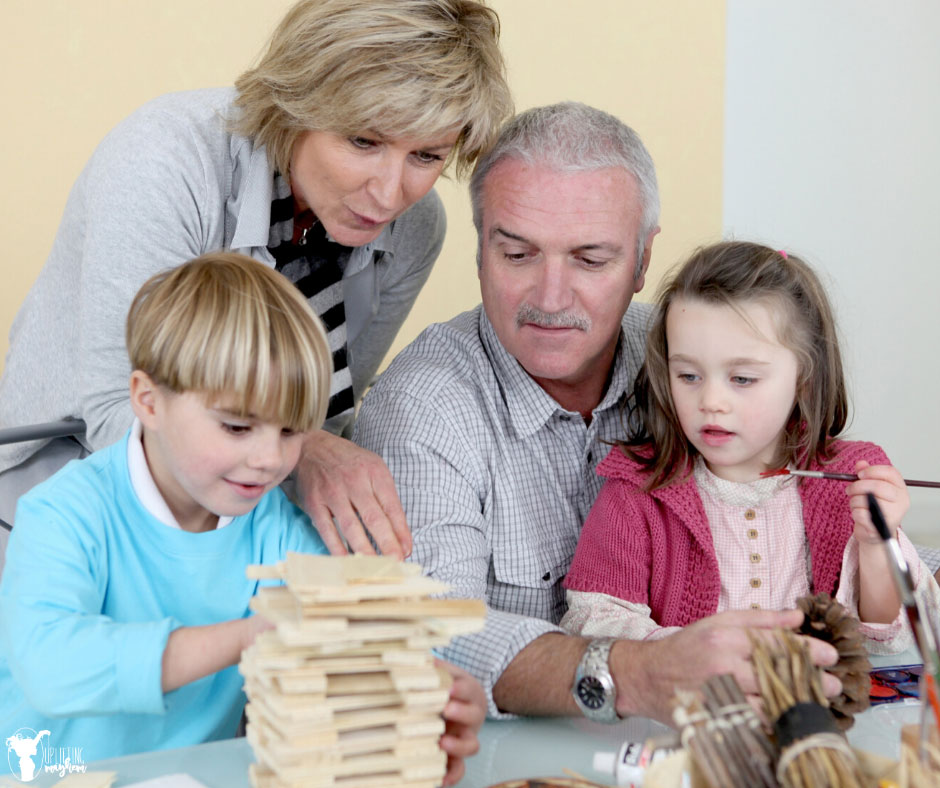Whether we’re 3 or 30 or 87, making cools things with our hands (or voices, or bodies, or minds all creativity counts!) is good for the soul. Try as we might, though, we can’t teach our children everything. One incredible way to out-source education is to take lessons from elders in your community.
Our elders (meaning our older folks, grandmas and grandpas, retired people) have a wealth of knowledge to share with our children and, quite often, a pressing need for meaningful work as well.

I love calling older people elders. To me, the title of elder denotes wisdom, respect, and trust. To be an elder is to have lived well and meaningfully for many years. Elders have experienced the ups and downs of work, family life, education, politics etc. Also, elders often have cool hobbies and great skill due to many years of practice. There is a rich relationship to be found in learning lessons from elders.
Sewing Lessons from Elders (or Great-Grandma)
This school year my oldest child (age 5) has been taking sewing lessons from my grand-mother-in-law. My husband’s grandma, Nannie as we call her, is an expert quilter. She also lost her husband just over a year ago. When we began sewing lessons in August, Nannie had been a widow for seven months. And she had just began a quilting frenzy to cope with her grief.
I wasn’t expecting anything grand when I first approached Nannie about sewing lessons. Maybe she’d let my daughter practice on scraps of material and show her how to thread a needle. I greatly underestimated Nannie’s need for a project and her enthusiasm for sharing her hobby with her great-grandchildren.
Over this school year, my five-year-old daughter has successfully sewn an apron, a skirt, and an entire quilt top for a twin-sized bed. I am blown away with how much she and Nannie have sewn together! She’s five! And not an exceptionally well-behaved, focused, or patient five-year-old either.
No, the miracle is not in my daughter’s behavior, but in the effort and skill of Nannie. She’s 83, widowed, arthritic, and struggles to even get up from her rocking chair. And yet she found a will to teach. She did hours of prep work for the sewing projects. She found strength to cut out fabric, to pre-pin everything, to unpick mistakes.
The key to Nannie’s success is that she is compelled to build a relationship with her great-granddaughter which she is accomplishing through sharing her passion for sewing.
Children Need Elders, Elders Need Children
Look to elders in your community that can pass on skills, trades, hobbies, and passions to your children. Our children need people who care for them to provide wisdom, companionship, and guidance all throughout their lives. Our elders need to experience the optimism, spunk, and liveliness of our children, They desperately need a purpose in life, a purpose of generativity and society that rapidly declines with age.
Taking lessons from elders allows to see someone who is truly committed and skilled in a certain area. After all, continuing to pursue a hobby once old age and health problems set in takes devotion.
Examining the Research
Researcher, Erik Erickson, created a model that introduced the concept of development through adulthood. We hear lots about the appropriate development of kids but very little on adults. Erickson’s model of development was the first to introduce this concept.
The developmental conflict of mid-to-late-adulthood is between generativity (passing on to younger generations) and stagnation (slowly decaying in society, losing purpose in the greater community as personal abilities decline).
During late-late-adulthood, developmental conflict centers on the competition between ego integrity (living the way we want to live) and despair (self-explanatory, no?). For more info on this model check this website out.
Interestingly, Erickson struggled to find any adults who actually overcame the conflict between the competing forces successfully. I wonder if the reason for his findings is that elders have become less and less a part of our modern day life. In traditional cultures, elders are integral members of society, caring for the very young and passing on histories.
In modern society, we treat elders differently. We expect them to retire, move from their homes, adapt to the loss of friends, property, physical ability, and create a new life in care-centers.
Reach Out to Elders for Lessons
What does all of this research mean? Reaching out to the elders in our communities will not only benefit our children but our elders as well. Our elders deserve our respect and our interest. They have lived full lives! They have so much to share! I hope we all can find an elder mentor in our community to share this life with and to learn from.
My Grandpa taught my kids this skill that I believe is soo important!

